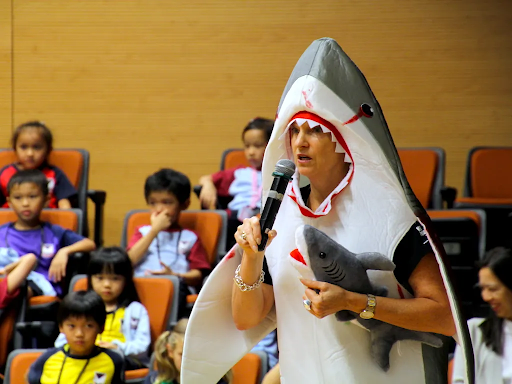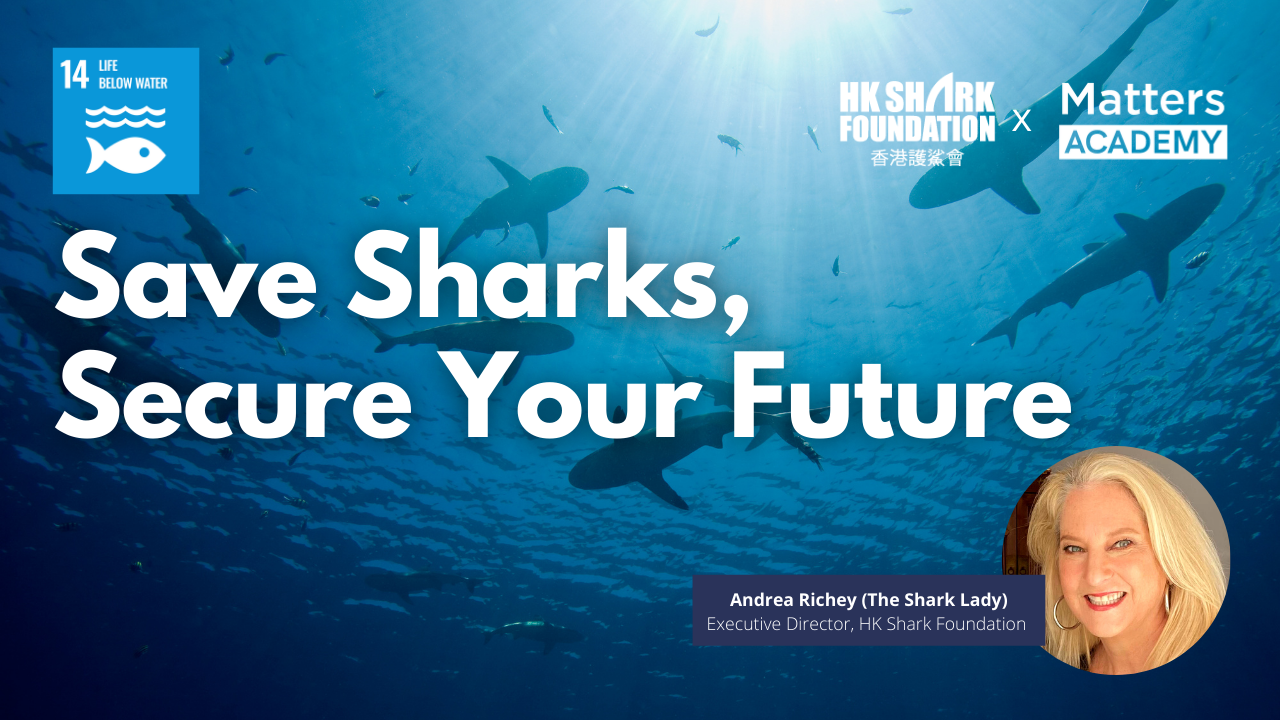Sharks, recognized as endangered species, are apex predators in the food web and entire marine ecosystem. They have been living on Earth for hundreds of millions of years, and have outlived many forms of current life on Earth. Sharks play an important role in monitoring the overall health of the ocean as part of their nature of being a marine predator, as well as keeping the carbon cycle in motion.
Unfortunately, sharks are becoming endangered, mainly due to human activities like the shark fin trade. From the consumption of shark fin soup to their use in medicinal products, there has been a massive decline in the shark population. On top of this, overfishing and destructive fishing practices are also responsible for this decline, contributing to the figure of 100 million of sharks being killed every year, according to Greenpeace. One-third of sharks have nearly reached the extinction level. The endangering of sharks will lead to the thriving of other predatory fish and marine animals lower in the food chain, greatly affecting the amount of fish available for food and the overall balance of the food chain. With this imbalance and decreasing/increasing populations, biodiversity in the ocean will be affected to a large extent as a result of the decreasing population of sharks. This effect is almost irreversible and hard to restore.

Apart from the threat to biodiversity, the extinction of sharks will also affect the carbon cycle. The carbon cycle is the circulation and exchange of carbon in different reservoirs on Earth. The balance keeps Earth’s temperature constant throughout the years, like a thermostat. As large-size fish, sharks are crucial to the atmosphere’s carbon-loading. The nature of sharks as a predator is essential in limiting the grazing of organisms that carry out photosynthesis, keeping the carbon content balanced. The extinction of sharks will contribute to the acceleration of global warming, negatively affecting all forms of life on Earth.
Living in a global shark crisis, humankind is the only one with the power to solve this issue. More attention and action is needed to save it before it is too late.

It's our honour to have Ms. Andrea Richey, also known as the Shark Lady, as one of the speakers in the Ocean Series. As one of the environmental activists who actively contributes to the conservation of sharks, she is recognised as one of the top 8 women who devoted their lives to protecting animals! As a former legal recruiter in a Wall Street firm, Ms. Richey started her journey of shark conservation by volunteering with the Hong Kong Shark Foundation (HKSF), a non-profit organisation committed to raising awareness about shark conservation. After years of contribution, she has now become the executive director of the foundation and has been working on educating the public, including individuals and companies. She also strives for meaningful policy changes and the end of consumption of shark products.
More information on how sharks benefit the ocean, why we need to protect them, and what we can do to save them can be found in our previous fireside chat with Ms. Richey.
Sources:
- Archer, D. (2008, May). Carbon cycle: Checking the thermostat. Nature Geoscience, 1, 289-290.
- Lacis, A. (2010, October). CO2: The thermostat that controls Earth’s temperature. NASA Goddard Institute for Space Studies. Accessed December 17, 2010.
- McCallum, W., & Pan, W. (2021, March 23). 100 Million Dead Sharks – it’s not all about Shark Fin Soup. Greenpeace.
https://www.greenpeace.org/international/story/46967/100-million-dead-sharks-its-not-all-about-shark-fin-soup/ - Webber, J. (2022, March 8). 8 Women And Groups Who Have Devoted Their Lives To Protecting Animals. Plant Based News.
https://plantbasednews.org/lifestyle/women/women-devoted-protecting-animals/
Save Sharks,
Secure Your Future
In this lecture, we have invited Ms. Andrea Richey, also known as the Shark Lady, to share her passion in being part of the Hong Kong Shark Foundation. Learn about how sharks benefit the ocean, why we need to protect sharks, and what we can do to save them in this lecture.


